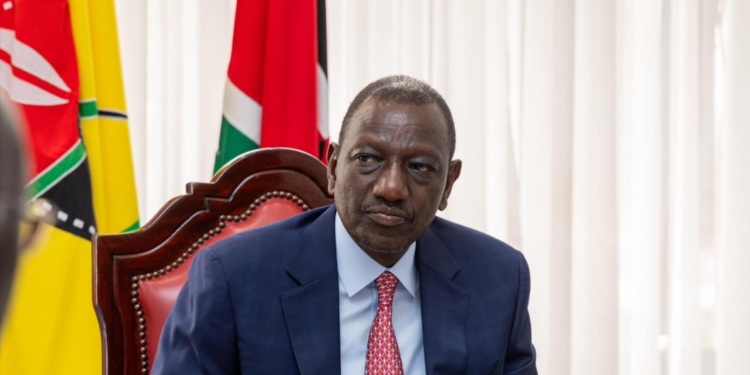President William Ruto appeared to take indirect aim at his recently impeached deputy, Rigathi Gachagua, during a speech marking Mashujaa Day celebrations in Kwale County. The address, focused heavily on national unity and equality, was seen by many as a rebuke to Gachagua’s divisive rhetoric that led to his removal from office.
Without mentioning Gachagua by name, President Ruto emphasised the importance of national cohesion and equal rights for all Kenyans. “Every citizen of Kenya is a full and equal member of our political community, entitled to make a contribution to nation building and with an inalienable right to a full, just and fair share of all the benefits that accrue from our development,” he declared.
The president’s comments come just days after Gachagua became the first deputy president to be removed from office through impeachment since Kenya adopted its 2010 constitution. The Senate voted to impeach him on Thursday, citing grounds including undermining national unity and inciting ethnic violence.
Gachagua had faced mounting criticism for primarily advocating for the interests of his home Mt Kenya region, rather than the nation as a whole. His approach had increasingly been seen as at odds with the Ruto administration’s stated goals of national unity and equitable development.
In what appeared to be a direct response to Gachagua’s divisive politics, President Ruto stated, “Any formula seeking to exclude, alienate or disenfranchise any person, group or community for any reason is repugnant to the very essence of our nationhood.”
The president’s Mashujaa Day speech, traditionally used to honour Kenya’s national heroes, drew heavily on the country’s history of struggle against colonial rule. Ruto emphasised that freedom fighters came from all parts of the country, united in their goal of national liberation.
“Our heroes did not hail from one village or speak one language,” he said. “Our heroes are numerous and diverse, united by a principled commitment to confront an unjust, exclusive and oppressive system in pursuit of a noble vision of national liberation.”
President Ruto also used the speech to outline his vision for Kenya’s economic future, framing it as a continuation of the struggle for freedom. “The Mashujaa of our era calls for urgent mobilization to create wealth and jobs, reduce poverty and inequality, and protect our environment,” he said.
This focus on economic development and job creation aligns with Ruto’s “bottom-up economic transformation agenda,” which he described as “Kenya’s economic freedom charter.” The president portrayed this agenda as a means of fulfilling the legacy of Kenya’s freedom fighters by addressing persistent unemployment, poverty, and inequality.
Following Gachagua’s impeachment, President Ruto moved swiftly to nominate Interior Minister Kithure Kindiki as his new deputy. Parliament unanimously approved the nomination on Friday, in a show of support for the president’s choice.
However, the transition has hit a legal snag. The High Court in Nairobi has issued an order halting Gachagua’s replacement until next week, when it will hear further arguments on the matter. This legal challenge adds a layer of uncertainty to an already tense political situation.
















